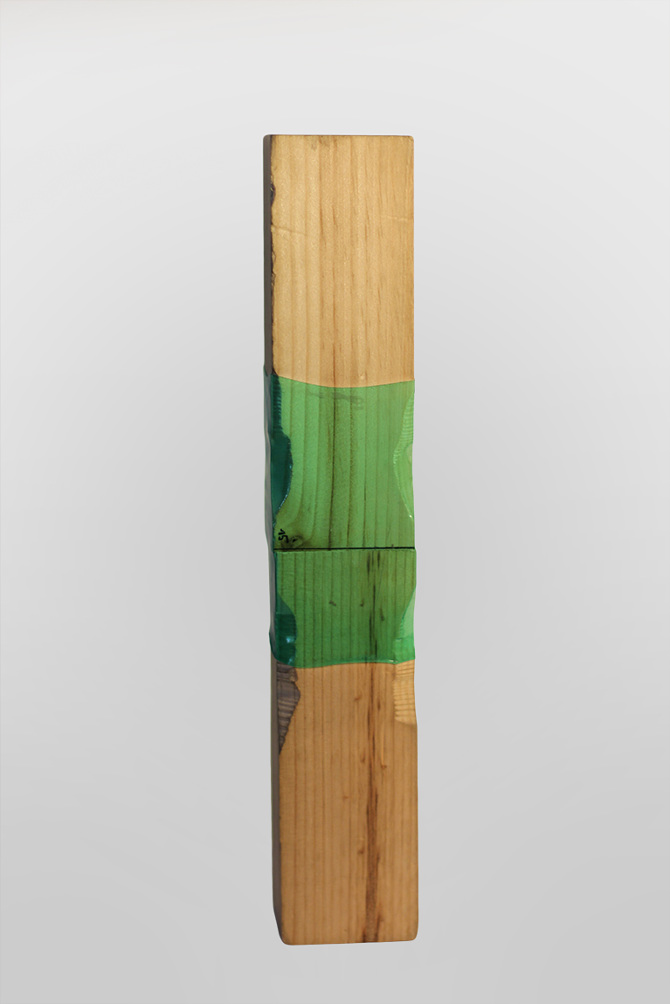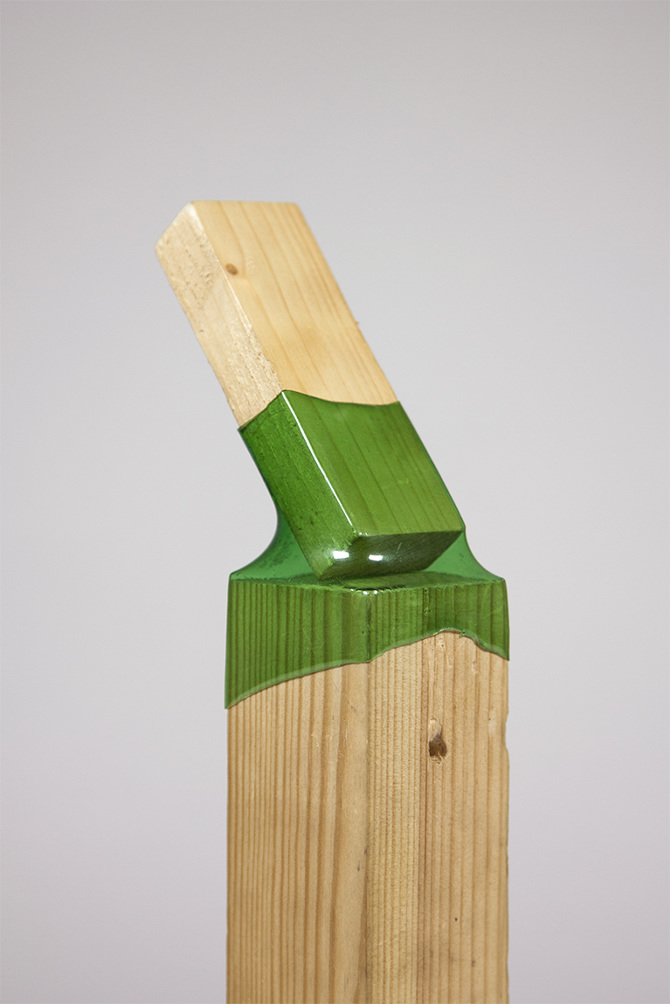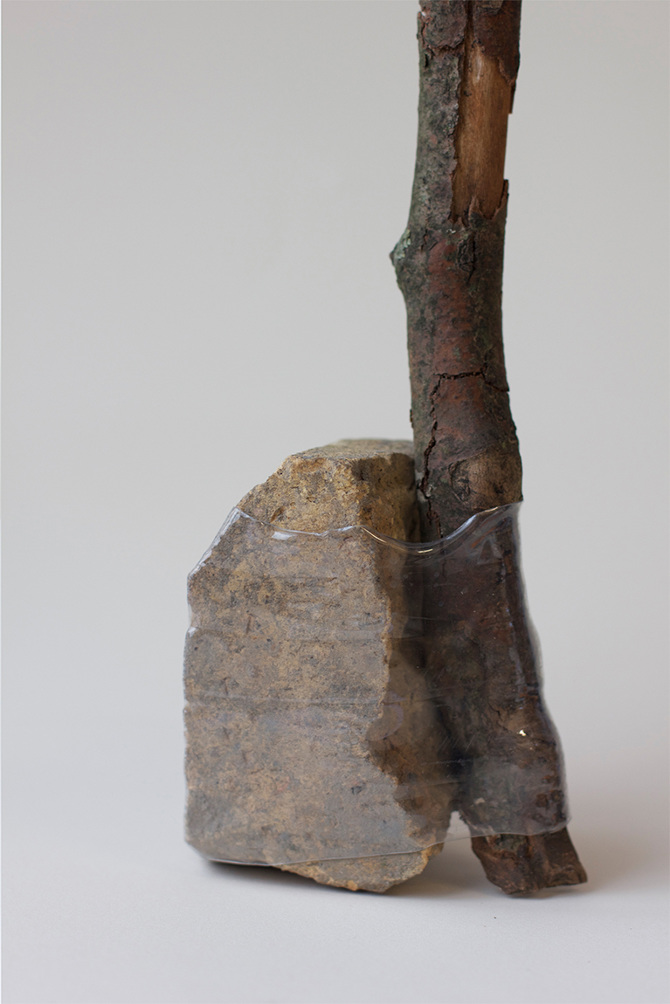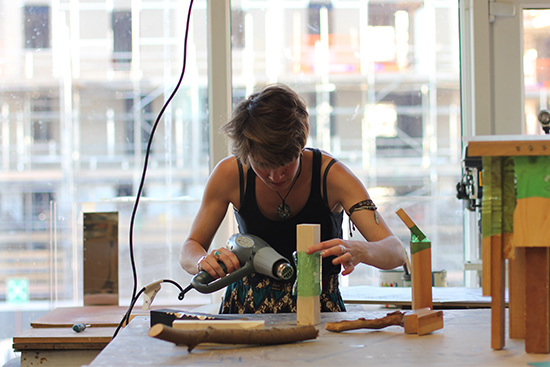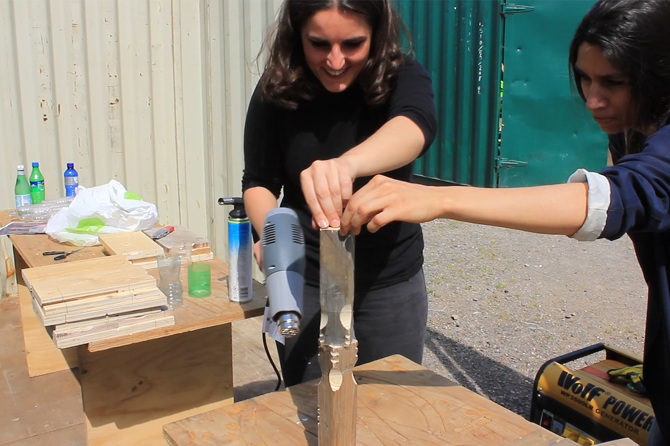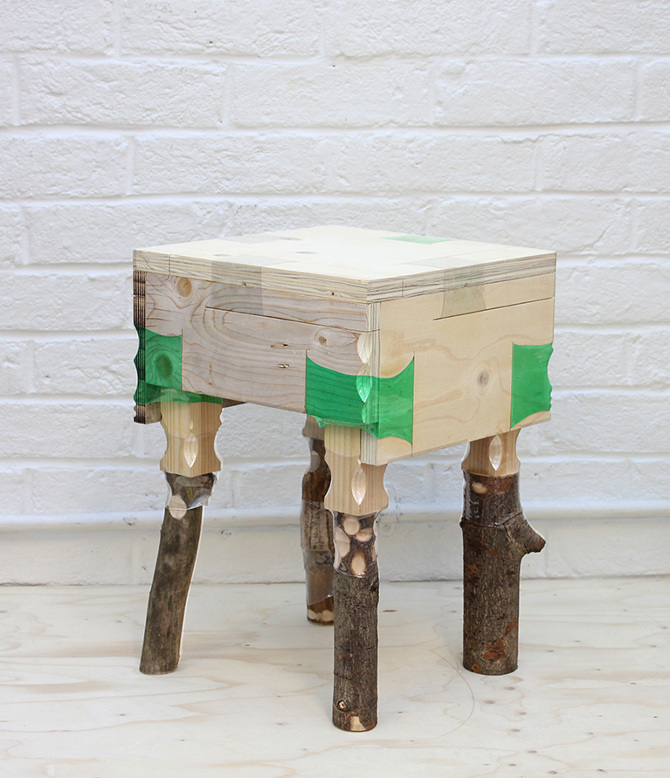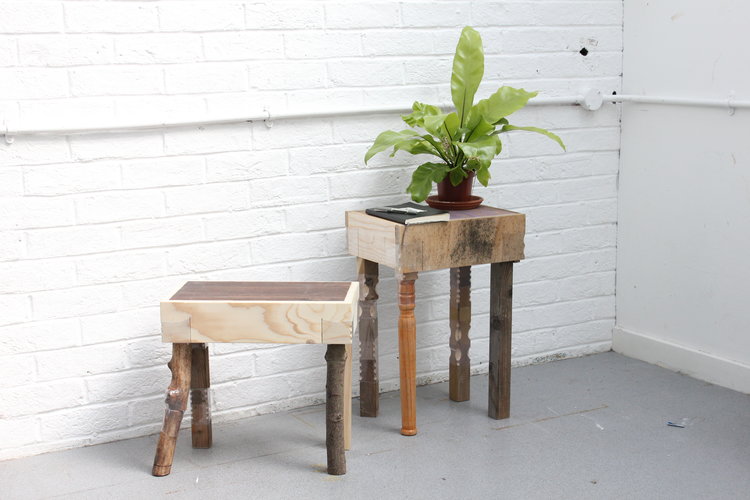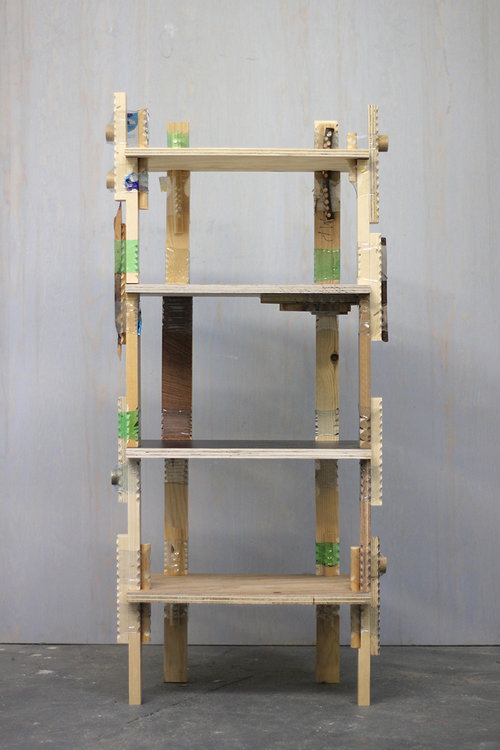Joining Bottles
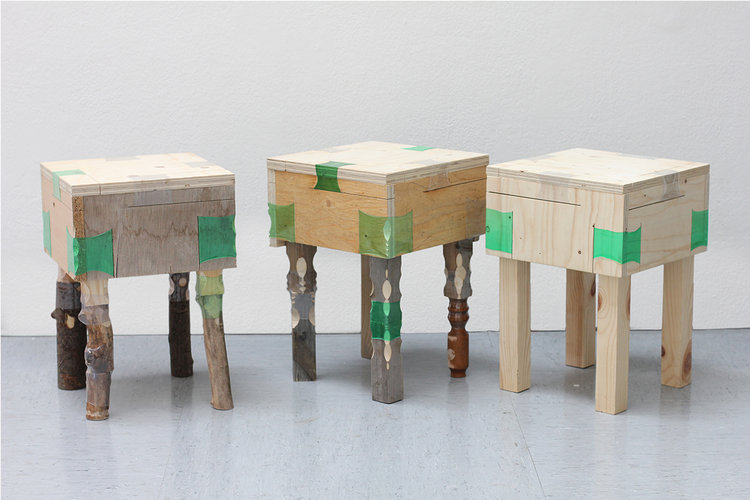 Joining Bottles is an experimental wood-joining technique using shrunk plastic bottles.
Joining Bottles is an experimental wood-joining technique using shrunk plastic bottles.
By heat, a simple plastic bottle is transformed into a wood bonding material offering a meaningful and accessible way to build functional structures.
Both materials, wood and plastic bottles, are widely abundant in cities and other places. There are lying there as waste, waiting to be reclaimed by people. Joining Bottles seeks to contribute to new beliefs based on what we, as individuals and communities, can do with what is available to us. In some countries, this project can make a real difference, promoting the collect of plastic bottles and wood waste, and helping people to empower themselves.
The technique can adapt itself to different shapes which allows to compose structures from any appropriate found materials. The different types of wood and plastic bottles available are dictating the final aspect and composition of the work. In that sense, a unique conversation is engaged within each piece. It creates more space for randomness and spontaneity, in other words, for human attributes in the creative process.
Joining Bottles from Micaella Pedros on Vimeo.
Pedros uses a heat gun at a temperature of 300 degrees Celcius to melt the PET plastic. PET plastic, which shrinks at a temperature of 300 degrees Celsius as the molecules move closer together.
According to Pedros, the strength of the plastic joints depends on the shapes of the objects being linked and also on the grooves in the wood. Deeper ridges allow the plastic to form a stronger hold, and stop the separate parts from moving and weakening the joint.
The process could be used to join offcuts of wood together, extend the length of pieces of timber, join processed and green wood, or even link wood and stones together. Pedros suggests it could also be used to fix broken furniture.
“There is something quite satisfying and magical about it,” she said. “Everyone encounters plastic bottles, and learning about a new way to make use of it inspires people to try it out themselves.”
Micaella Pedros, England


was used when creating this post
PROFILE
Micaella Pedros is a social and humanitarian designer based in London.
She obtained her Master’s Degree in Design Product at the Royal College of Art in 2016.
Inspired by the values of democratic design and do-it-yourself culture,
she truly developed her practice and philosophy during her volunteering experience in Uganda in 2014 and her work/travel in Guatemala in 2015.
Through design, she seeks to contribute to society by unveiling ways to play and benefit from local resources and natural forces in order to empower people.

